Run, Test, Run. We tell how was Mobile Testing Meetup
On August 11, our office hosted Avito Mobile Testing Meetup - a mitap, completely dedicated to testing applications on iOS and Android platforms. We talked about the quality of the mobile app - how to understand that it works properly, about native UI tests in iOS - what to test and which tools will help to improve them. It was discussed that it is better to use in testing Android applications - Appium or Espresso, and in the end-to-end tests - whether they can be organized in large mobile projects, and not only.
In addition, colleagues from Yandex talked about their mobile phone performance testing tool, and we presented a telegram bot to Gosha, who looked after everyone from around the corner, conducted two quizzes and awarded participants who came to the meeting from Volgograd and Voronezh. In general, this was a real festival of mobile testing.
Under the cut share impressions, photos, videos, presentations from the meeting and feedback from listeners.
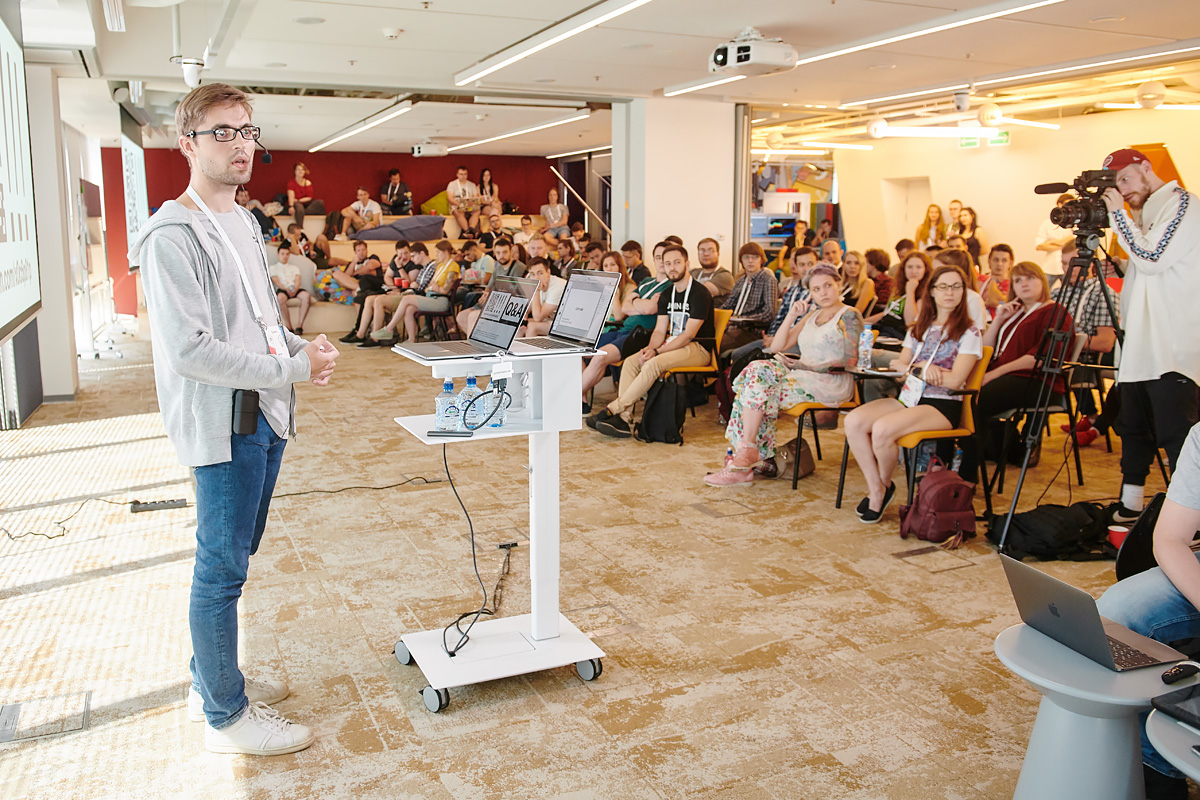
Reports
Assuring Quality of Mobile Apps. Alexey Denisov, PTScientists
During his career, Alexey was engaged in creating software for various platforms: mobile clients, desktop applications, API, command line tools, and so on, and now he is developing and testing software for spacecraft. In the report, he told how to ensure the quality of the application: how to understand quality, where to start, which tests for quality control should be used depending on the resources available and the age of your application, shared problems that most often arise. For example, asynchronous evolution, the complexity of implementing tests in legacy systems, and a poor mental model of the team involved in ensuring the quality of the application. And he answered the question how to solve them.
Feedback from listeners
- Liked the most!
- He performed well, the material is clear.
iOS UI tests in Avito. Artem Razinov, Avito
Artyom continued a series of reports on UI testing, but with more emphasis on the testing framework and tests. I shared how we raised UI tests in iOS in half a year (at), reduced their costs and reduced the amount of manual testing by 60%, shared techniques on how you can raise them and what you should strive for. He told us what results we got when we started using more autotests, and gave a brief insight into our process - of course, with beautiful graphs and screencasts.
In addition, Artem gave a little more information about our tool than you can see at a glance at its source code. And told why Mixbox is better than Appium and its analogues.
Feedback from listeners
- An interesting report. It was pleasant: the comparative table, framework (fake cells, khaki, swizzling and other perversions - this is cool).
- The fire!
- Be sure to watch a video about diplinks. Thank.
Scaling end-2-end testing for 12 teams. Pavel Ivanov, Alfa Bank
Pavel Ivanov told how their companies organized e2e testing, when the number of teams grew from one to twelve, how processes were changed and what tools they implemented. In addition, we talked about the stability of the end-to-end tests, written using Appium, and shared the problems they encountered, and their solutions.
Feedback from listeners
- I liked the practical cases and methods of automation. Applies to the web, which we will implement. Thanks for the report!
- It was interesting to hear about the difficulties that the speaker had to face, and how the guys found a non-standard way out.
- Scrum & BDD for the win!
Appium vs Espresso. What to choose and how to use. Alexey Emelin, Yandex
Alexey Emelin spoke about the technologies used by the Yandex-Browser Android team for functional testing. The speaker shared the advantages and disadvantages of the universal Appium and standard Espresso, how, on what and when to run automatic checks and how to solve infrastructure problems, if they arise.
Feedback from listeners
- Very good cases for use. We are testing the web, but the methods shown will be perfectly applicable. Thanks for the report!
- Everything is clear and to the point.
- I liked it, it was interesting.
Atmosphere and activity
The discussion at the meeting was hot: the guests argued with the speakers, asked many questions after their presentation and came up to discuss the subtleties of mobile testing on the sidelines.
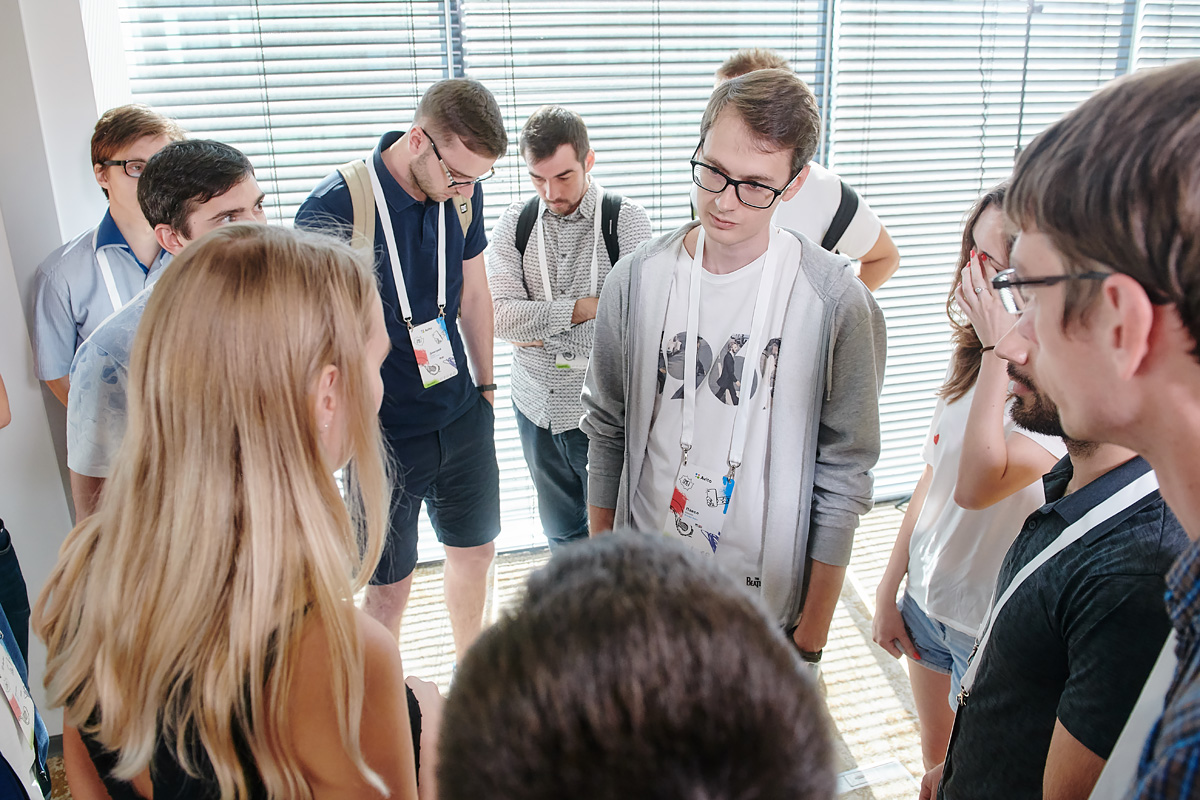
Avito Mobile Testing Meetup interested specialists from other cities. An iOS developer from Kazan and two large “delegations” of testers arrived at the mitap: from Voronezh and Volgograd. Such a craving for mobile testing is worth a lot.
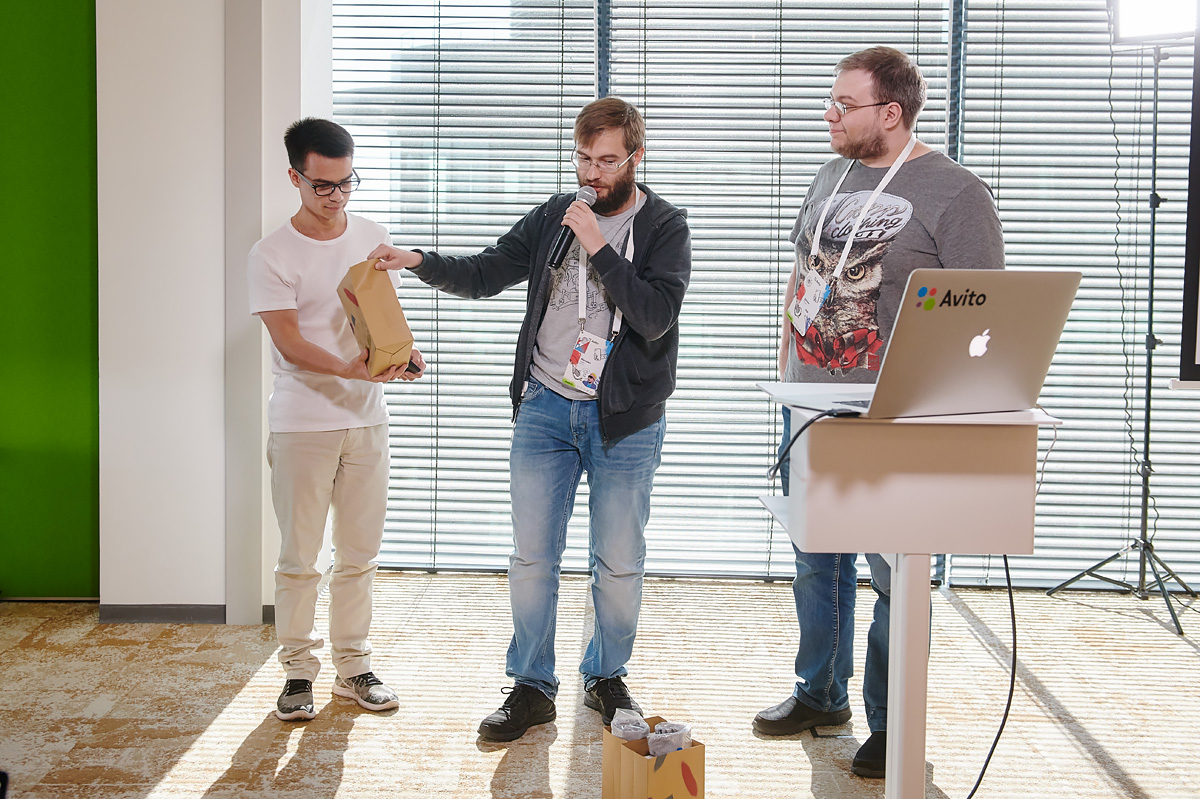
In addition, colleagues from Yandex came to our mitap. They talked about their Volta tool for testing the performance of mobile phones.
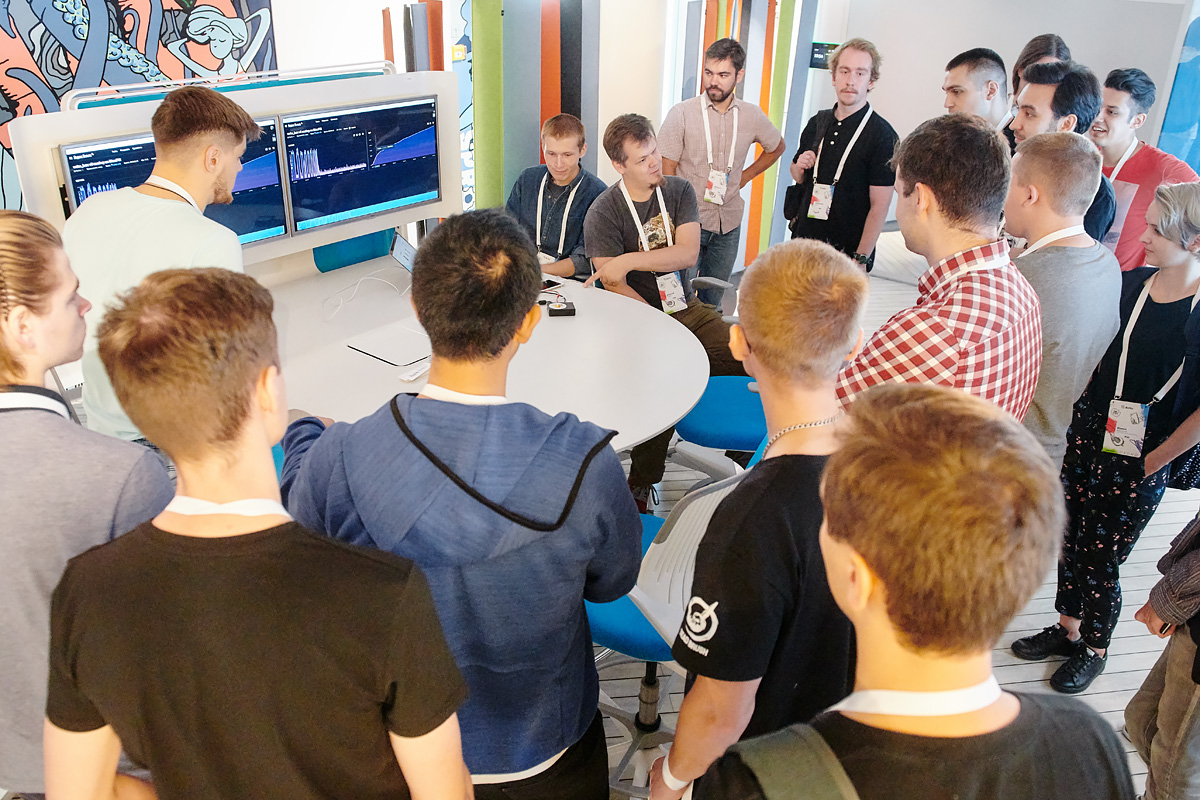
Here is what the participants say about him:
- Very cool and great that the guys all told and showed. I learned the nuances that will now help review the testing of some points.
- Cool idea!
- Regular chips from Yandex. In general, I think this is the right direction. It will not be superfluous. Yandex knows where to look.
We really enjoy listening to mobile testing reports, but sometimes it’s helpful to be distracted and just have fun. During the break, we conducted a quiz using the Kahoot gaming platform. Surely the information that participants learned from the speakers was useful to them in solving these issues.
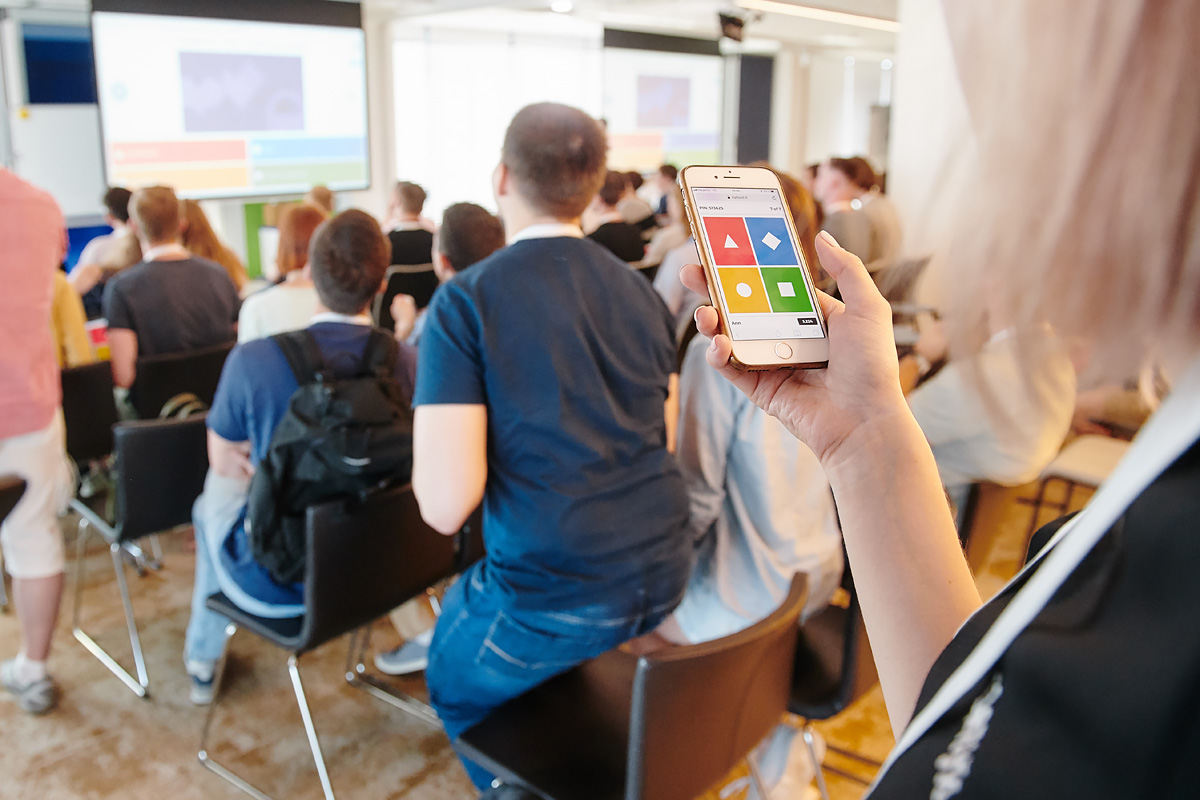
A few days before the meeting, we offered everyone to warm up and solve a small problem that we had prepared. The task and conditions of the competition were posted on GitHub. Requirements for the code were given, the code itself was not shown, but it was necessary to write tests for it. We prepared several versions of the algorithm with bugs (N versions). Tests run on each version of the algorithm. If at least one test found a bug in the algorithm, the participant received a point (that is, a maximum of N points). For each incorrect test point was removed. Who had the most points, he won. By lucky coincidence, the winner was the participant who came to the mitap, and he was able to personally receive his award.
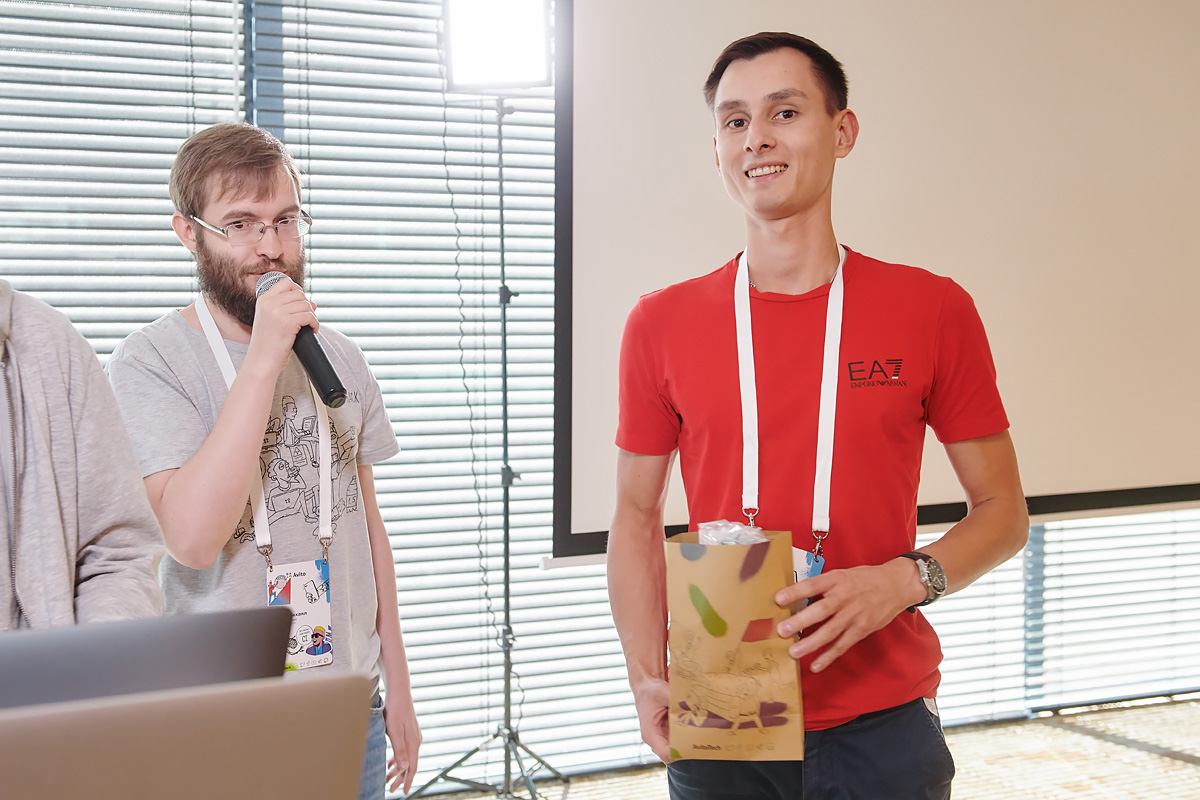
They also prepared two competitions for those who wanted to feel like a techno-blogger: a competition for the best report and the best review of the meeting. According to the results, Konstantin Igorevich became the best reporter , and the reward for the best review goes to Natalia Morozova.
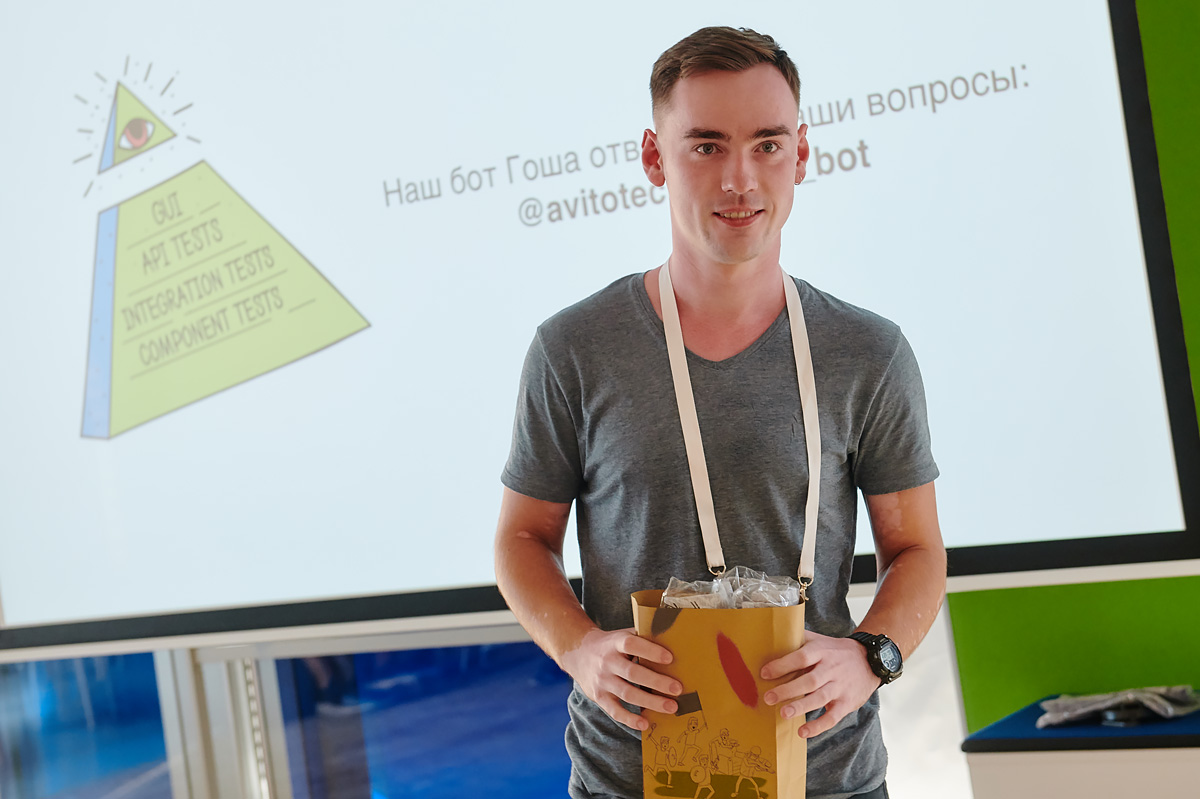
To make it easier for participants to navigate through the mitap, we made a telegram bot named Gosha, who answered frequently asked questions. By the way, Gosh worked not only online, but also offline. He carefully watched what was happening and was always ready to remind himself:
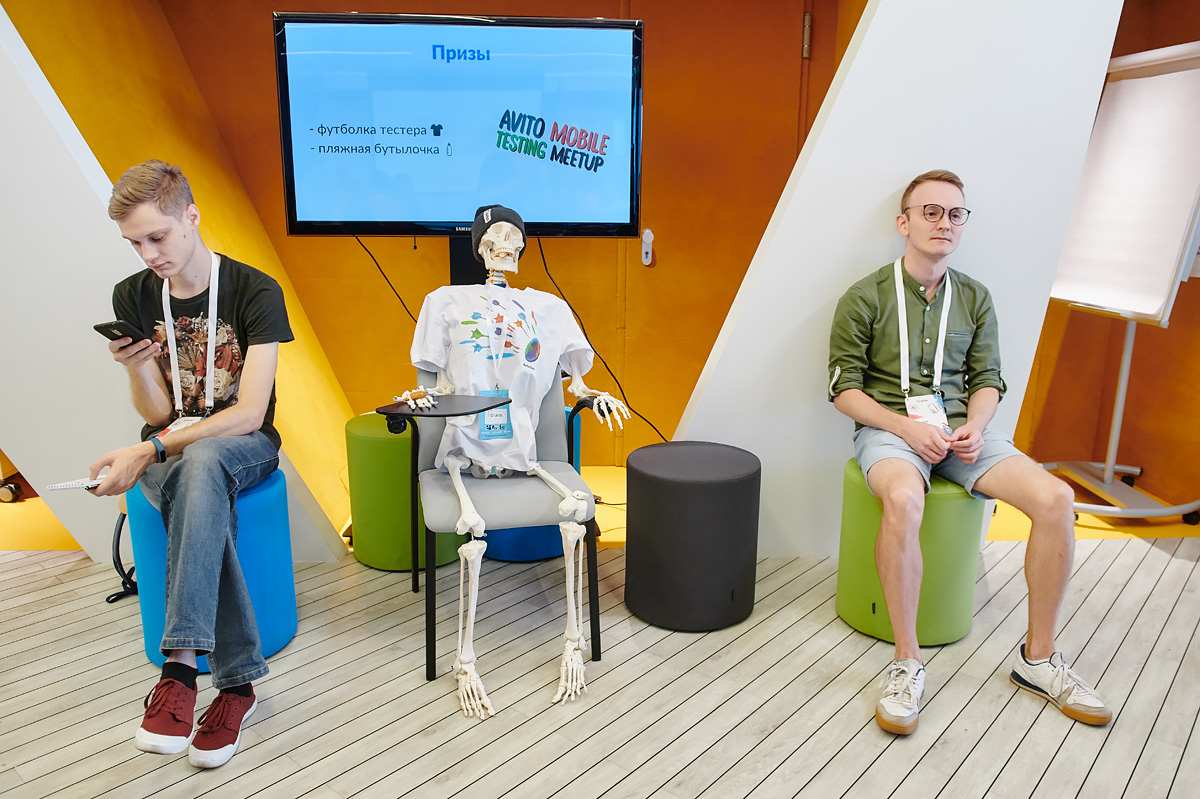
Results
We hope that our mitap has become an important event for a large and emerging culture of conducting mitats on mobile testing in Russia, because it is cool to be a tester of mobile applications. This is indicated by the participants and speakers of Avito Mobile Testing Meetup. We conducted several mini-interviews with them and did video cutting with answers to questions about mobile testing and more.
Sorry for the quality of the video, this is an experiment. We wanted to convey the atmosphere of the meeting. Feel free to express your opinion about this format.
Thanks to everyone who came to the mitap, watched the video and participated in our offline and online activities. All photos from the meeting we posted on Facebook and Vkontakte . We often hold events for technical specialists. If you do not want to miss them, subscribe to our Timepad . Tell us in the comments, reports on what topics you want to hear at our meetings - we will take into account your opinion when planning the following events.
It's only the beginning. See you!
